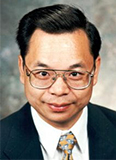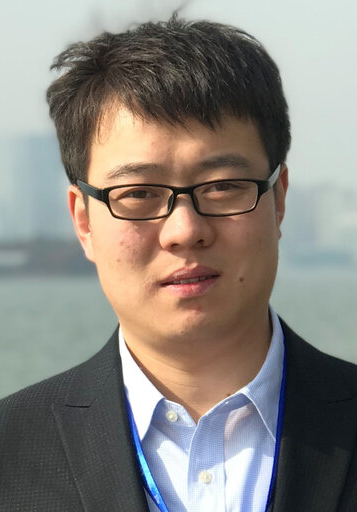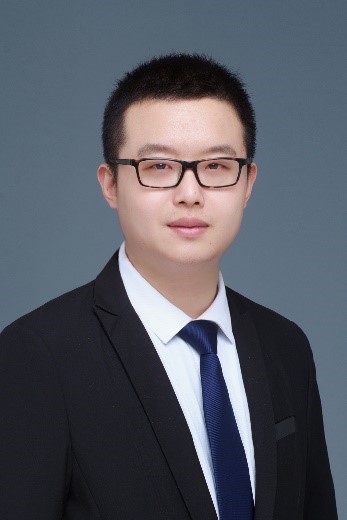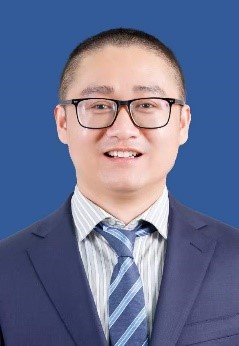
Speakers
Prof. Simon X. Yang University of Guelph, Canada | Prof. Simon X. Yang received the B.Sc. degree in engineering physics from Beijing University, China in 1987, the first of two M.Sc. degrees in biophysics from Chinese Academy of Sciences, Beijing, China in 1990, the second M.Sc. degree in electrical engineering from the University of Houston, USA in 1996, and the Ph.D. degree in electrical and computer engineering from the University of Alberta, Edmonton, Canada in 1999. Prof. Yang joined the School of Engineering at the University of Guelph, Canada in 1999. Currently he is a Professor and the Head of the Advanced Robotics & Intelligent Systems (ARIS) Laboratory at the University of Guelph in Canada. Prof. Yang has diversified research expertise. His research interests include intelligent systems, robotics, control systems, sensors and multi-sensor fusion, wireless sensor networks, intelligent communications, intelligent transportation, machine learning, and computational neuroscience. He has published over 600 academic papers, including over 350 journal papers. Prof. Yang he has been very active in professional activities. He serves as the Editor-in-Chief of Intelligence & Robotics, and International Journal of Robotics and Automation; and an Associate Editor of IEEE Transactions on Cybernetics, IEEE Transactions on Artificial Intelligence, and several other journals. He has been involved in the organization of many international conferences. Title:Bio-inspired Intelligent Control of Autonomous Underwater Vehicles Abstract:Intelligent control of autonomous underwater vehicles (AUVs) are essentially important for many important applications such as security surveillance, environmental monitoring and exploration in rivers, lakes, and seas, particularly in unstructured, hazardous and complex environments. In this talk, a bio-inspired neural network system is first developed for real-time AUV path planning with the effect of dynamic currents and unpredictable obstacles by integrating a velocity synthesis algorithm. Then the bio-inspired neural network is extended to dynamic task assignment and path planning in a multi-AUV system, where optimal results are obtained through a priority list derived by path distances deducted based on the neural network. After that, efficient and robust trajectory tracking control of AUV without actuator saturation is developed based on fuzzy logic considering the environmental noise. Finally, consensus formation tracking control of multi-AUV systems is developed using distributed bioinspired sliding mode control, with guaranteed Lyapunov stability and smooth torque inputs. Extensive simulation experiments have verified the effectiveness and efficiency of the developed intelligent methods in applications to specific AUV systems with comparisons to existing mainstream methodologies. |
Prof. Ning Sun Nankai University, China | Ning Sun received the B.S. degree in measurement & control technology and instruments (with honors) from Wuhan University, Wuhan, China, in 2009, and the Ph.D. degree in control theory and control engineering (with honors) from Nankai University, Tianjin, China, in 2014. He is a Senior Member of the IEEE. He is currently a Professor with the Institute of Robotics and Automatic Information Systems, Nankai University, Tianjin, China. His research interests include intelligent control for mechatronic/robotic systems with an emphasis on (industrial) applications. Dr. Sun received the Machines 2021 Young Investigator Award, the prestigious Japan Society for the Promotion of Science (JSPS) Postdoctoral Fellowship for Research in Japan (Standard), the Wu Wenjun Artificial Intelligence Excellent Youth Award in 2019, the ICCAR 2022 Young Scientist Award, the China 10 Scientific and Technological Developments in Intelligent Manufacturing of 2019, several outstanding journal/conference paper awards, etc. He serves as an Associate Editor for several journals, including IEEE Transactions on Industrial Electronics, IEEE Transactions on Systems, Man, and Cybernetics: Systems, IEEE Transactions on Intelligent Transportation Systems, IEEE Systems Journal, and Journal of Field Robotics. In addition, he has been an Associate Editor of the IEEE CSS Conference Editorial Board since July 2019, and he is/was an Associate Editor for the top robotics conferences IEEE ICRA and IEEE/RSJ IROS. Title: Intelligent Transportation Control for Underactuated Crane Systems With Applications Abstract: As heavy industrial engineering machines, cranes have been playing very important roles in various fields, such as logistics, construction, metallurgy, and manufacturing, among others. The major task for cranes is to transport cargos from their initial positions to desired locations rapidly and accurately, with negligible swing. At present, most cranes used in practice are manipulated by human operators, which exhibits such drawbacks as low efficiency, poor anti-swing performance, incorrect operations, and high risks. Therefore, the problem of anti-swing positioning control for cranes important both theoretically and practically. Cranes are typically underactuated systems, i.e., they have fewer control inputs than their degrees of freedom (DoFs), making their control problem challenging. In this presentation, I will first share some of our recent results on dynamics analysis, motion planning, and intelligent control of different crane systems, including overhead cranes, rotary cranes, tower cranes, ship-mounted cranes, etc., with hardware experiments and applications. Then, some of our extended and related researches on robotic systems with similar dynamic characteristics will also be discussed briefly, including self-balance robots, pneumatic artificial muscle (PAM)-actuated robots, metal ingot polishing-oriented industrial robots, and so on. |
Prof. Xiangyu Wang Southeast University, China | Xiangyu Wang is a professor and doctoral advisor at the School of Automation, Southeast University, and a key member of the Mechatronic Systems Control Laboratory. He is a recipient of the National High-Level Young Talent Program, the Jiangsu Provincial Excellent Young Scholar, and an Outstanding Young Backbone Teacher under Jiangsu's “Qinglan Project” for universities. He earned Ph.D. from the School of Automation at Southeast University in 2014 and continued to teach there after graduation. His research focuses on non-smooth control, disturbance rejection control, and their applications in multi-robot systems, power electronic systems, and more. He has led more than ten national, provincial, and industry-sponsored projects, including three projects funded by the National Natural Science Foundation of China. He has published over 60 academic papers in journals, where more than 20 papers have been published in the journals Automatica and IEEE journals such as IEEE TAC, IEEE TCST, IEEE TASE, IEEE TIE, and IEEE TPE. He serves as an associate editor for the journal IET CTA. Prof. Wang has authored one monograph and holds over ten patents. He was the winners of the First and Second Prizes of Natural Science of Ministry of Education, the Gold Medal at the Geneva International Invention Exhibition, and the Spark Award of Huawei Technologies Company. His academic achievements have been recognized with awards such as the Jiangsu Province Top 100 Outstanding Academic Papers in Natural Sciences. He is also listed among the top 2% of scientists worldwide by Stanford University. Prof. Wang is the secretary-general of Jiangsu Association of Automation, a senior member of IEEE, a senior member of the Chinese Association of Automation, and a senior member of the Chinese Institute of Command and Control and a member of its three professional committees. He has also served as a organizing comittee chair, a program chair or a publication chair for several academic conferences. Title: Research on Anti-disturbance Distributed Control and Optimization Abstract: In recent years, distributed control and optimization problems for multi-agent systems have become a research hotspot. Multi-agent systems are often influenced by internal and external disturbances, and effective treatment on these disturbances is crucial. Achieving strong disturbance rejection performance and fast convergence is a key challenge in this field. This speech will explore anti-disturbance distributed control and optimization problems in disturbed multi-agent systems, and present the speaker’s research achievements in this area, which include distributed active anti-disturbance, embedded anti-disturbance, and non-smooth composite anti-disturbance distributed control and optimization methods. The proposed methods and solutions significantly enhance both the dynamic and steady-state performances of closed-loop systems and are applicable to a wide range of distributed control and optimization problems. They have also been successfully applied to cooperative control and optimization of multi- mobile robot systems, among other fields. |
Prof. Shengquan Li Yangzhou University, China | Li Shengquan, professor, doctoral supervisor, was appointed as the academic leader of Yangzhou University and Senior Member of IEEE, mainly engaged in anti-interference theory and its application in machine-electrical energy conversion system. Presided over more than 20 projects of the National Natural Foundation, the Natural Science Foundation of Jiangsu Province, the State Key Laboratory of New Energy Power System and the State Key Laboratory of Mechanical Structure Mechanics and Control; He has published more than 70 academic papers in top domestic and foreign journals such as IEEE TIE, IEEE TASE, MSSP and Control and Decision. He is the author of Modal Sensing and Active Anti-interference vibration Control of piezoelectric intelligent Structures. He won the first prize (independent) of the "Air China Tianri" Vacuum Network Competition in 2020, the Outstanding Paper Award of the international conference SAMCON2022 (the only Chinese in that year), the Best paper Award of ICANDVC 2021, and the best paper award of the academic annual conference of Jiangsu Province Automation Society in 2023. He was employed as guest editor of SCI journals MEAS CONTROL-UK, Machines and Energies, as well as a member of the program committee of several international conferences such as IEEE CYBER2022, and was selected as the talent project of the six talent summits in Jiangsu Province and the special expert of Jiangsu Province's "Enterprise Innovation Post". He is also a member of the Special Committee on Active Disturbance rejection Control, Intelligent Control and System of the Chinese Command and Control Committee, and a member of the Youth Working Committee of the Chinese Society of Automation. Guide students to win the "Challenge Cup" national "Star Award", the provincial grand prize, the "Internet +" provincial second prize, etc., the national chip design competition - FPGA special competition national second prize. |



